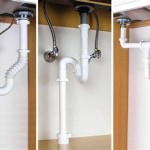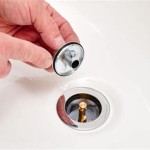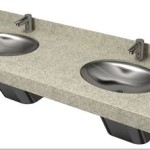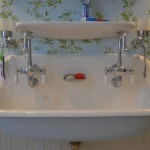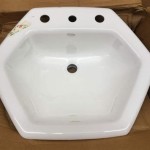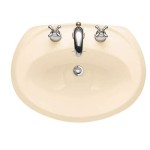What Is The Best Flooring To Use In A Bathroom?
Bathrooms are often susceptible to moisture, making choosing the right flooring a crucial decision. The best flooring for your bathroom should withstand water exposure, resist mold and mildew growth, and be easy to clean. Several materials are available, each with unique advantages and drawbacks. This article explores some of the most popular bathroom flooring options, providing insights into their characteristics, pros, and cons to help you make an informed choice.
1. Ceramic and Porcelain Tiles
Ceramic and porcelain tiles are perennial favorites for bathrooms. These materials are durable, resistant to moisture, and offer a wide array of colors, patterns, and textures to suit any style. They are also comparatively inexpensive.
Ceramic tiles are generally less expensive than porcelain tiles, but they might be less durable. Porcelain tiles are denser and more water-resistant than ceramic tiles, making them ideal for high-traffic areas and for use in wet rooms. Both ceramic and porcelain tiles offer a range of finishes, from smooth to textured, allowing you to customize your bathroom's aesthetic.
However, tiles can be cold to the touch, and grout lines between tiles can collect dirt and grime, requiring regular cleaning. Even with proper sealing, grout can be susceptible to mold and mildew growth if moisture is not properly managed.
2. Natural Stone
Natural stone, including marble, granite, slate, and limestone, adds a touch of elegance and sophistication to any bathroom. These materials are durable and resistant to moisture, but they come at a higher price point than other options.
Natural stone is a beautiful and luxurious flooring choice. Each piece is unique, offering distinctive veining and patterns that create a timeless look. However, natural stone can be porous, requiring regular sealing to prevent stains.
Another consideration is that, like tiles, natural stone can be cold to the touch. Additionally, some types of stone, such as marble, are more prone to scratches and etching, especially in high-traffic areas.
3. Luxury Vinyl Tile (LVT)
Luxury vinyl tile (LVT) is a popular choice for bathrooms due to its durability, affordability, and water resistance. LVT is made from multiple layers of vinyl, offering a realistic look that mimics the appearance of natural materials like wood, stone, and tile.
LVT is a versatile flooring option, available in a wide range of colors, styles, and textures. It's also relatively easy to install, making it a suitable DIY project. Unlike natural stone or tiles, LVT is warm to the touch, providing comfort underfoot.
The main disadvantage of LVT is its potential for scratches and dents. While it's durable, high-heel shoes or sharp objects can damage the surface. However, LVT is easy to clean and maintain, making it a practical choice for busy bathrooms.
4. Bamboo
Bamboo is a sustainable and environmentally friendly flooring option that adds a touch of warmth and natural beauty to bathrooms. Bamboo is naturally resistant to moisture and mildew due to its dense structure. It's often treated with a sealant to enhance its water resistance and longevity.
Bamboo flooring offers a unique aesthetic and a warm, inviting feel, making it a popular choice for bathrooms seeking a natural touch. However, bamboo is susceptible to scratches and dents, and it can be sensitive to excessive moisture. It's important to choose a bamboo floor specifically designed for bathrooms and to ensure adequate ventilation to prevent moisture buildup.
5. Engineered Hardwood
Engineered hardwood is a durable and elegant flooring option that can add a touch of sophistication to bathrooms. It consists of a thin layer of real wood veneer bonded to a plywood core, making it more stable and less susceptible to moisture warping than traditional hardwood.
Engineered hardwood offers a wide range of wood species and finishes, allowing you to create a custom look for your bathroom. However, it's crucial to select a flooring specifically designed for bathrooms to ensure it can withstand moisture and humidity.
Engineered hardwood requires regular maintenance, including sealing and cleaning, to maintain its beauty and protect it from damage. It can also be more expensive than other bathroom flooring options.

Best Bathroom Flooring Options Forbes Home

10 Best Worst Flooring Options For Your Bathroom Horizon Services

The Best Flooring For Your Bathroom Surplus Building Materials

What Is The Best Flooring To Use In Bathroom

Best Bathroom Flooring Options

Best Flooring For Bathrooms In 2024 Badeloft

Waterproof Bathroom Flooring Options Twenty Oak

What Is The Best Flooring For Bathrooms A Guide To Helping You Choose

The Pros Cons Of Bathroom Flooring Options Carpet Court

Luxury Vinyl Flooring Is A Great Choice For Chic Bathrooms
Related Posts
